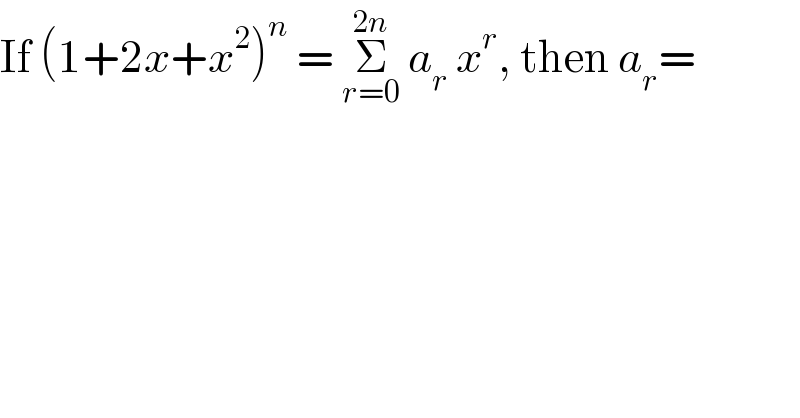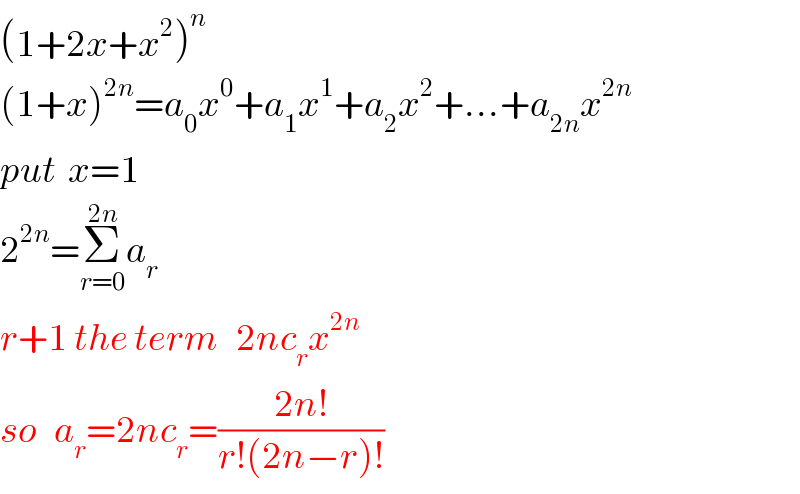
Question and Answers Forum
Question Number 56137 by gunawan last updated on 11/Mar/19

Commented by maxmathsup by imad last updated on 11/Mar/19
![(1+2x+x^2 )^n =(x+1)^(2n) =Σ_(r=0) ^(2n) C_(2n) ^r x^r ⇒a_r =C_(2n) ^r =(((2n)!)/(r!(2n−r)!)) and r∈[[0,2n]].](Q56181.png)
Answered by tanmay.chaudhury50@gmail.com last updated on 11/Mar/19

| ||
Question and Answers Forum | ||
Question Number 56137 by gunawan last updated on 11/Mar/19 | ||
 | ||
Commented by maxmathsup by imad last updated on 11/Mar/19 | ||
![(1+2x+x^2 )^n =(x+1)^(2n) =Σ_(r=0) ^(2n) C_(2n) ^r x^r ⇒a_r =C_(2n) ^r =(((2n)!)/(r!(2n−r)!)) and r∈[[0,2n]].](Q56181.png) | ||
Answered by tanmay.chaudhury50@gmail.com last updated on 11/Mar/19 | ||
 | ||
| ||